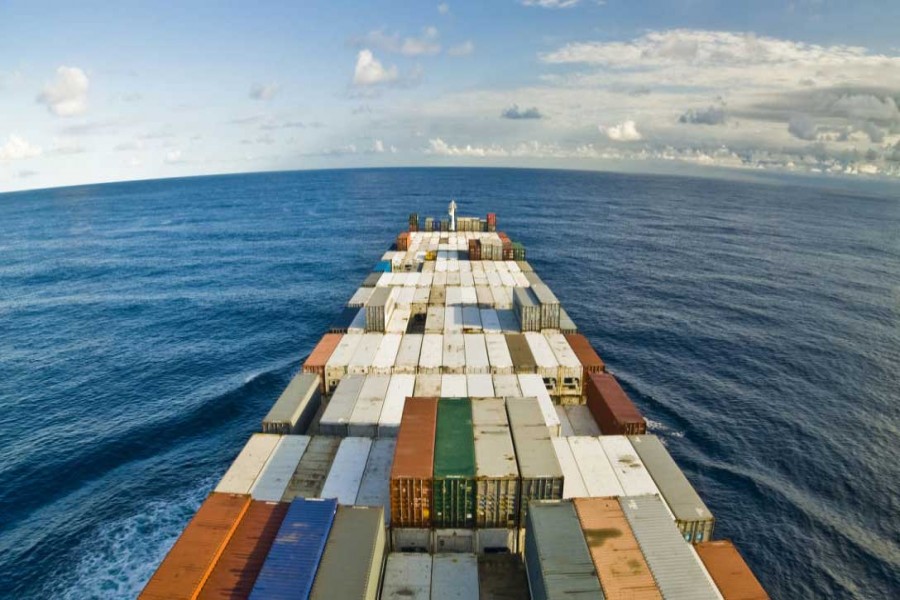The country's exporters are under a legal obligation to repatriate the proceeds against the exported goods within four months of shipment. The law is equally applicable to the repatriation of export proceeds against services. Non-repatriation or partial repatriation is a punishable offence.
At the same time, the lender bank is to recover the loan given against import of raw materials under the back-to-back letter of credit (LC). Most of the exporters rely on bank loan for procuring the raw materials essential for the production of the goods/articles to be exported. To that end, the exporters have to open LC for procuring raw materials either from local or foreign suppliers. Additionally, for facilitating the export, the exporters may have to avail of several credit facilities from the banks. After exporting and repatriating the foreign proceeds, the liabilities are adjusted against the said foreign proceeds.
An exporter who could not manage repatriation of the export proceeds may go for arbitration, if the contracts are well written with provision of arbitration. Such an affected exporter may also file civil suit for realisation of export value along with compensation and interests as well as criminal case for breach of trust against the local agency of the buyers, if there is any. The exporters may also file lawsuit against the buyers to recover the overdue export amount in the courts of the buyer's country.
Banks are under obligation to take several legal actions against exporters defaulting on repatriation of export proceeds. The actions include (1) selling or taking control and possession of the mortgaged and hypothecated property, shares etc., (2) listing the name of the exporter along with guarantors as defaulters in the CIB list of Bangladesh Bank, (3) filing suit under the Artha Rin Adalat Ain, 2003, (4) cheque dishonour case under Negotiable Instruments Act, 1881, and (5) more aggressively criminal cases under Penal Code, 1860 for breach of trust, cheating, and others.
The repatriation is not fully under control of exporter and the question of certain degree of immunity arises. The question concerns the legal remedies that are available to the affected exporters in case of non-repatriation of foreign proceeds.
There is a small breathing space for an exporter. The Bangladesh Bank has the legal authority to exempt the affected exporters from the liability to repatriate the foreign proceeds by exercising the powers under Section 12 (2) (b) of the Foreign Exchange Regulation Act, 1947 (FERA). The BB may exercise the power under section 12 (3) of the FERA and may permit the affected exporters to sell the exported goods from the port of the buyer's country and procure the sale proceeds accordingly. In this way, the affected exporter may have the opportunity to sell his exported goods to some other buyers other than the original buyer by way of selling 'stock-lot' and very high discounted prices. Even then, if the affected exporters fail to sell the exported goods, upon request of the exporters, the BB has the authority to direct that the goods be assigned to the government. The BB also has the legal authority to protect the lender bank.
In comparison with Bangladesh, India has more favourable terms and condition for exporters. The Indian Foreign Exchange Regulation Act permits realisation and repatriation of the export proceeds within nine months from the date of export.
Any export to a warehouse established outside India with permission of the RBI is allowed to bring the export proceeds within 15 months from the date of shipment. In terms of the RBI Master Directions on Exports, an exporter who has not been able to realize the outstanding export dues despite best efforts, may either self-write off or approach the AD Bank which had handled the relevant shipping documents, with appropriate supporting documentary evidence.
There are also limits prescribed for write-offs of unrealised export bills due to loss of cargo in transit. For instance, when shipments from India for which payment has not been received either by negotiation of bills under letters of credit or otherwise are lost in transit, the banks must ensure that insurance claim is made as soon as the loss is known. In cases where the claim is payable abroad, the banks must arrange to collect the full amount of claim due on the lost shipment, through the medium of their overseas branch/correspondent and release the duplicate copy of EDF only after the amount has been collected.
The RBI Master Directions on Exports further provide that the write-off will be subject to certain conditions that the relevant amount has remained outstanding for more than one-year. Besides, satisfactory documentary evidence is furnished in support of the exporter having made all efforts to realize the dues.
India has easier rules and AD bank also can extend time of realisation of export proceeds. The Bangladesh Bank may also extend times of export realization.
Again, the exporters in India are generally exempted from liability if they use all the available options to realise the money from abroad. In Bangladesh, exporters usually face criminal liability although the BB may exempt some of them at their discretion.


